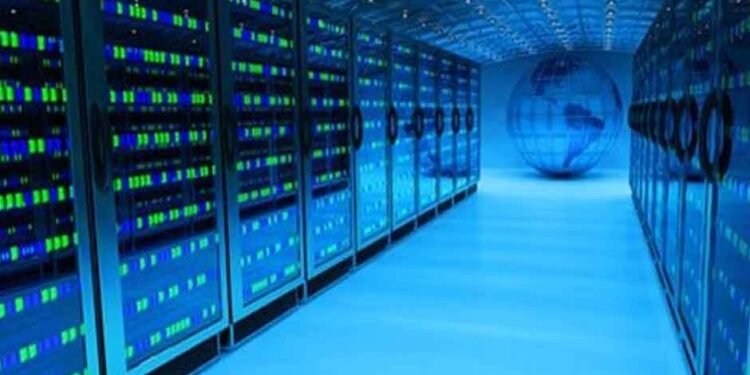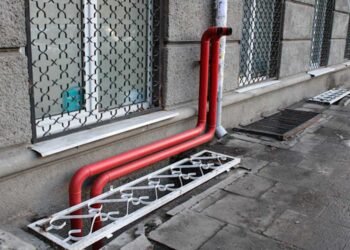In order to store, process, manage, and distribute massive amounts of data, computer systems, servers, networking hardware, and storage devices are housed in a centralized building known as a data center. It is intended to guarantee the safe and dependable operation of these essential IT infrastructure parts.
Importance of Selling Used Data Centers
Cost savings.
Businesses can recoup a sizeable amount of their initial expenditure by selling used data centers. Data centers are expensive to construct and maintain, so by recouping part of the initial expenditures, selling them can help relieve financial strain.
Environmental sustainability.
If businesses sell used data centers, they can maintain environmental sustainability. Selling permits reuse and lowers electronic waste, then decommissioning and discarding the entire system.
Upgrading technology.
Thanks to buying or selling used data centers, businesses will be able to upgrade their infrastructure and implement advanced, more efficient technologies. As a result, work is improved, and energy is consumed to a lesser extent.
Market demand.
Used data centers are in greater demand on the market, as smaller companies or startups may lack the funding to construct a brand-new facility from the ground up. If you sponsor companies that are trying to find a cost-effective solution, you will help them a lot. Selling used data centers will help you do this.
Business agility.
Businesses can more swiftly adjust to shifting business demands by selling old data centers. They can invest in more adaptable and scalable choices that meet their changing IT requirements by unloading the existing infrastructure.
Knowledge transfer.
Organizations have the chance to impart knowledge and experience to the buyer when selling a secondhand data center. Best practices, operational insights, and lessons gained that aid the buyer’s operations in growing and succeeding might be included in this.
Assessing Your Used Data Center
Evaluating the condition and functionality of the equipment.
You must thoroughly inspect all the data center’s equipment, including servers, network devices, cooling systems and power infrastructure. All the hardware in the data center needs to be carefully inspected. This way you will identify problems in time and be able to solve them faster.
Determining the market value of the data center.
A number of variables need to be taken into account in order to calculate the market value, including the facility’s location, size, age, power capacity, cooling effectiveness, redundancy levels, and connectivity possibilities. The market size can also be estimated by evaluating the demand for data center facilities in the particular market and contrasting it with comparable offerings. You’ll get expert assistance with the data center evaluation. They can quickly provide you with more information if they do it in this manner.
Identifying any potential upgrades or repairs needed.
If you scrutinize the infrastructure and equipment, you will be able to identify areas that may need modernization or repair. This includes assessing the power and cooling systems’ ability to accommodate future growth, looking for old or unsupported gear or software, and figuring out whether there are any security flaws. The long-term efficiency, dependability, and security of the data center are improved by identifying future improvements or repairs.
Getting Ready to Sell Your Data Center
Cleaning and organizing the physical space.
This entails organizing the equipment and wires, while also completely cleaning the data center of any trash or extraneous objects. A neat and ordered environment not only makes a nice first impression, but it also increases security and productivity
Compiling a comprehensive inventory of all equipment and components.
You should make a complete list of all servers, storage systems, networks and other hardware and software elements in the data center. Thanks to this inventory, potential buyers understand the scope and worth of the assets up for sale.
Assembling crucial data, such warranties and maintenance logs.
You should gather and arrange all significant documents. For example, it can be maintenance logs, warranties, service agreements and any other relevant data. Thanks to this documentation, prospective buyers get clarity and comfort about the condition and background of the equipment.
Locating Prospective Buyers
Researching and contacting data center brokers or resellers.
Data center equipment is the area of expertise for brokers or resellers. You can sell your used data center equipment to a data center and IT equipment reseller, as this is one of the easiest and the most secure options. First, you can do a little research and contact them. Then try to contact potential customers. Consider those who are actively looking for solutions for data centers. Thanks to this, you can facilitate the sales process and make connections with potential customers.
Utilizing online marketplaces and classified ads.
On websites that offer adverts and sales, your products are promoted. With the help of these platforms, you can swiftly draw in new clients. If you want to attract more customers, provide a clear explanation of your services, set reasonable prices, and react to queries very away.
Networking within the industry to find interested parties.
Trade exhibitions, seminars and business meetings will greatly help you to promote yourself. Thanks to this, you get to know professionals who will be interested in your products. Your chances of finding interested parties will rise if you make contacts in the business. Joining appropriate professional organizations or online discussion boards can also open doors for networking with new customers and keeping abreast of market demands and trends.
Dispute Resolution and Sale Completion
Establishing a fair asking price based on market value and condition.
Detailed market research should be done, including the most recent sales of nearby houses that are similar to yours. Don’t miss factors such as location, size, amenities and condition of the facility. If you want to choose a reasonable and competitive asking price corresponding to the market value and condition of the property, consult with real estate experts or appraisers.
Negotiating terms and conditions with potential buyers.
Be willing to negotiate, but don’t lose sight of your top priorities. Clearly communicate your expectations and desired terms, but also be willing to listen to the buyer’s perspective. Remain flexible and be prepared to compromise on certain aspects to reach a mutually beneficial agreement. You might get help from a specialist if you think it is tough for you to handle negotiations.
Ensuring a smooth transfer of ownership and payment.
Work with a reputable escrow company or real estate attorney to handle the legal and financial aspects of the transaction. Ensure all necessary documents are completed accurately and in a timely manner. Verify the buyer’s financing or proof of funds to ensure they can fulfill their payment obligations. Coordinate with the buyer, escrow company, and any other involved parties to facilitate a smooth transfer of ownership, including coordinating inspections, appraisals, and any required repairs. Stay in communication throughout the process to address any potential issues promptly and ensure a seamless closing.
Conclusion
A used data center sale can be a difficult procedure that calls for meticulous planning and thought. Don’t forget to do everything in order, namely to assess the value of your equipment, prepare the data center for sale and find a reputable buyer. You may successfully sell your used data center and get the best results by following these instructions and consulting with industry experts.












